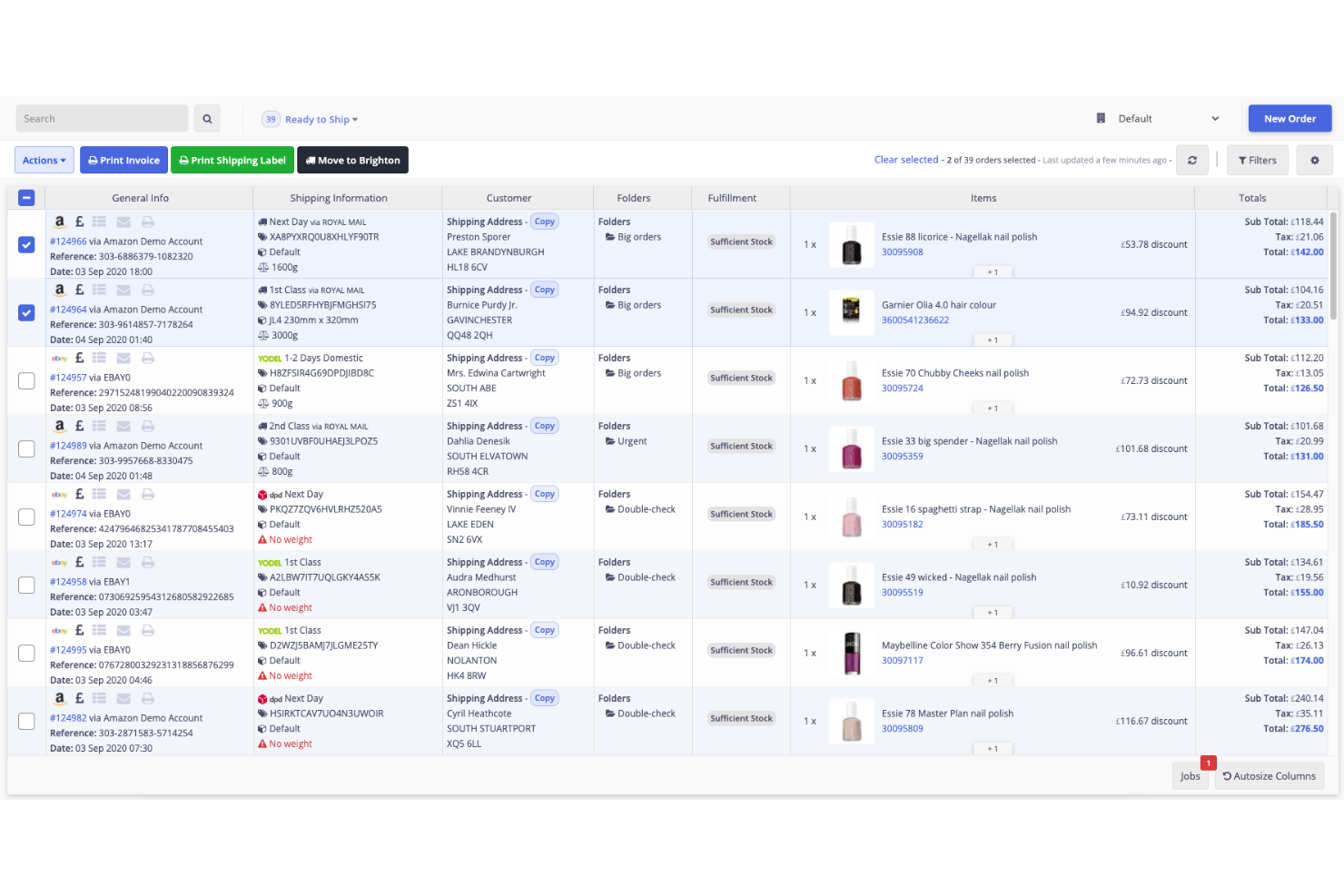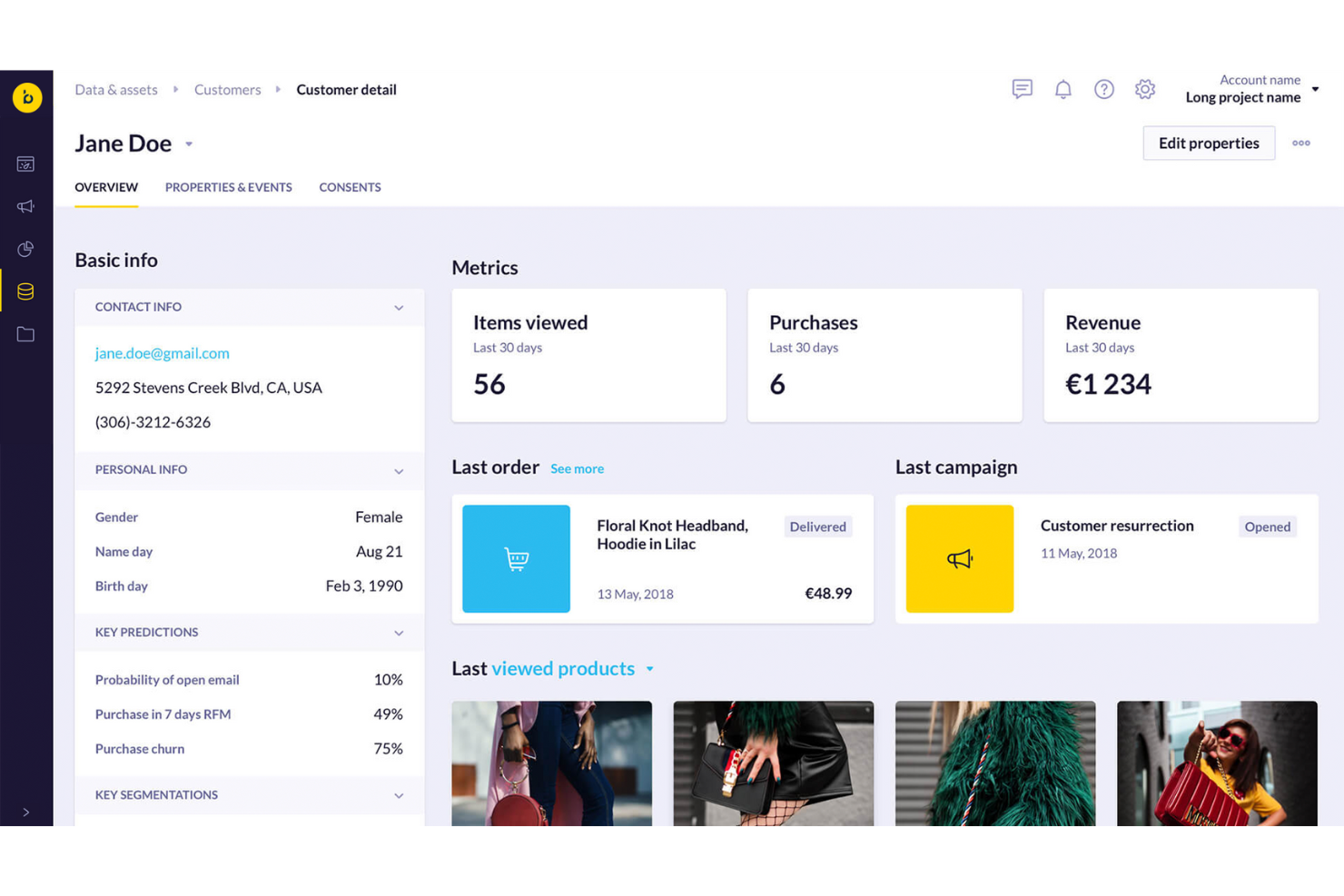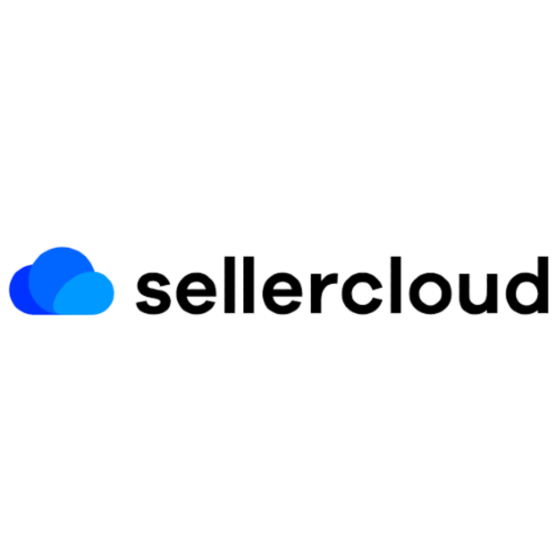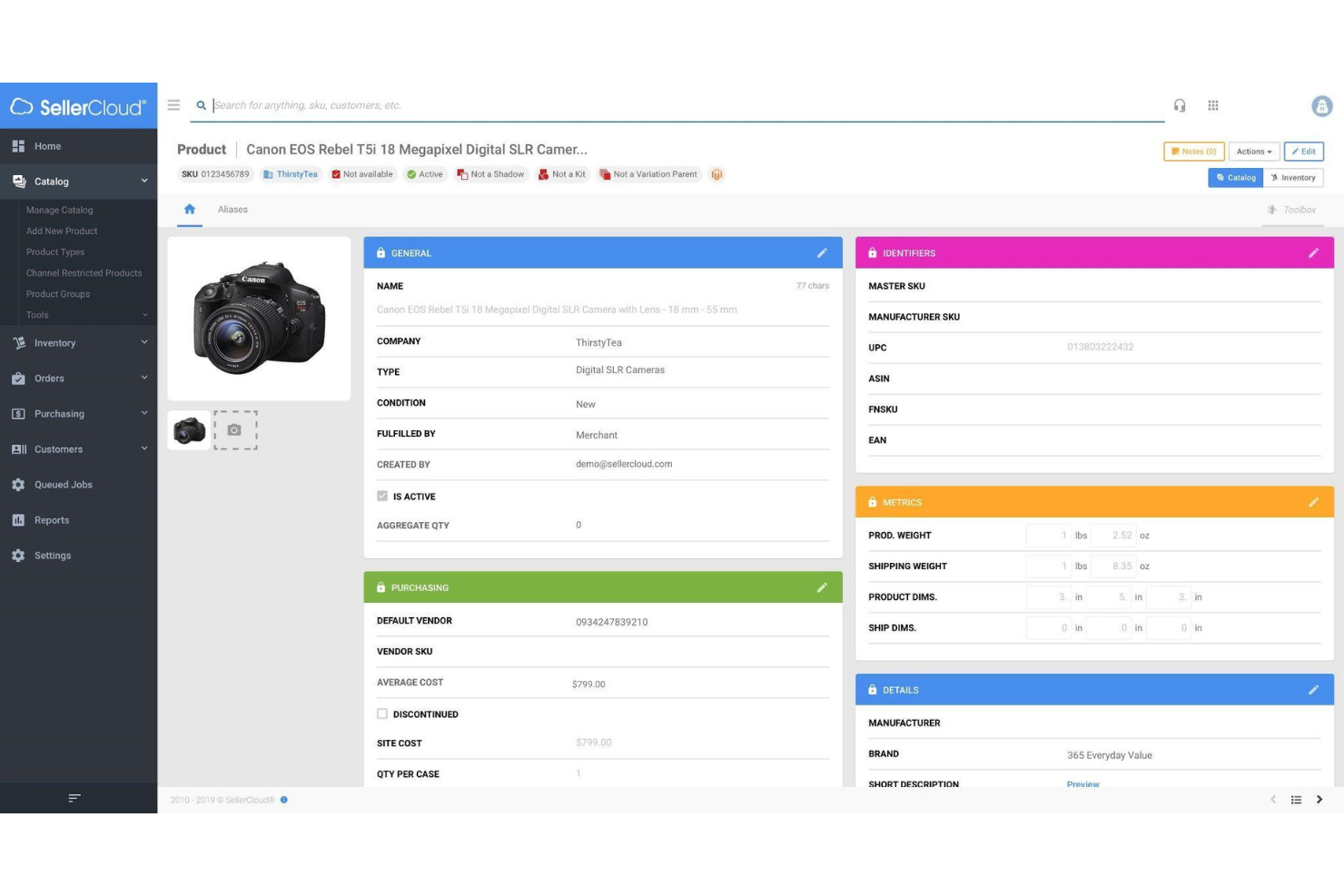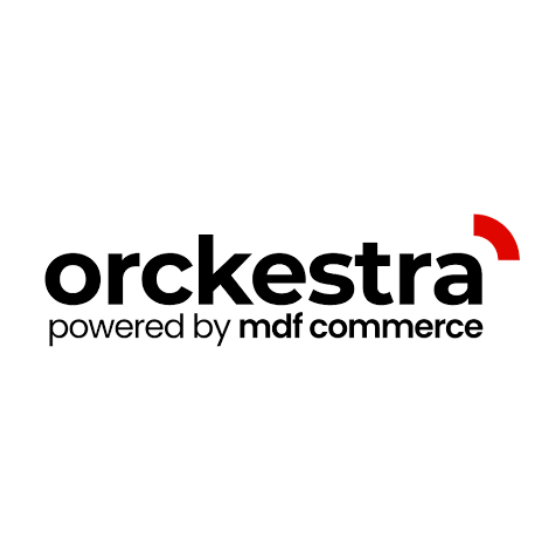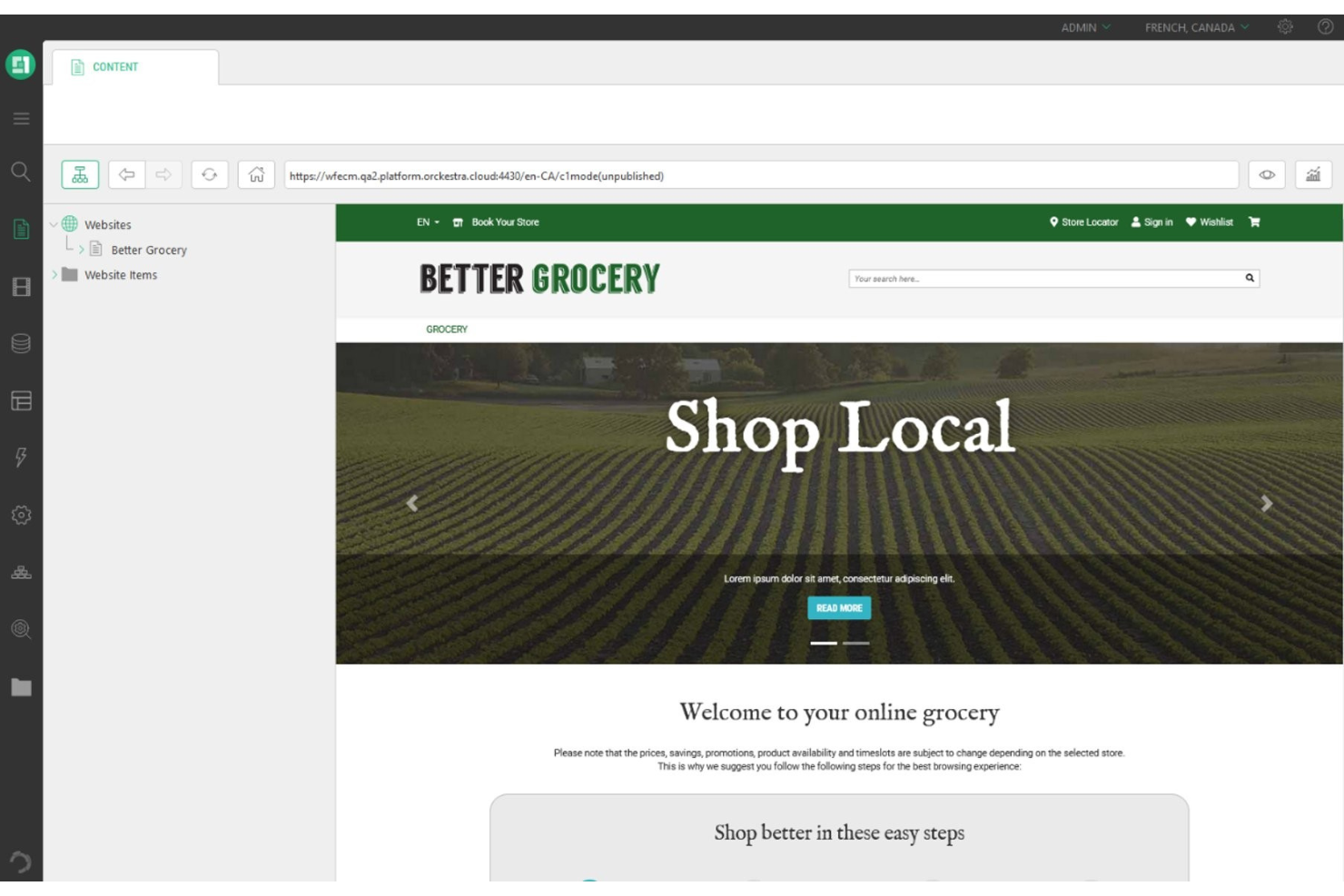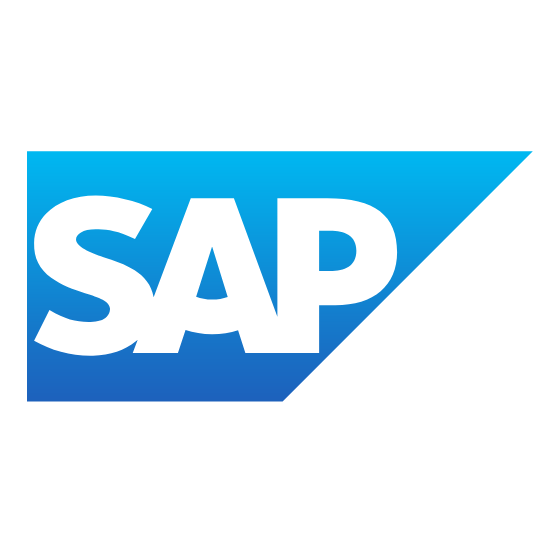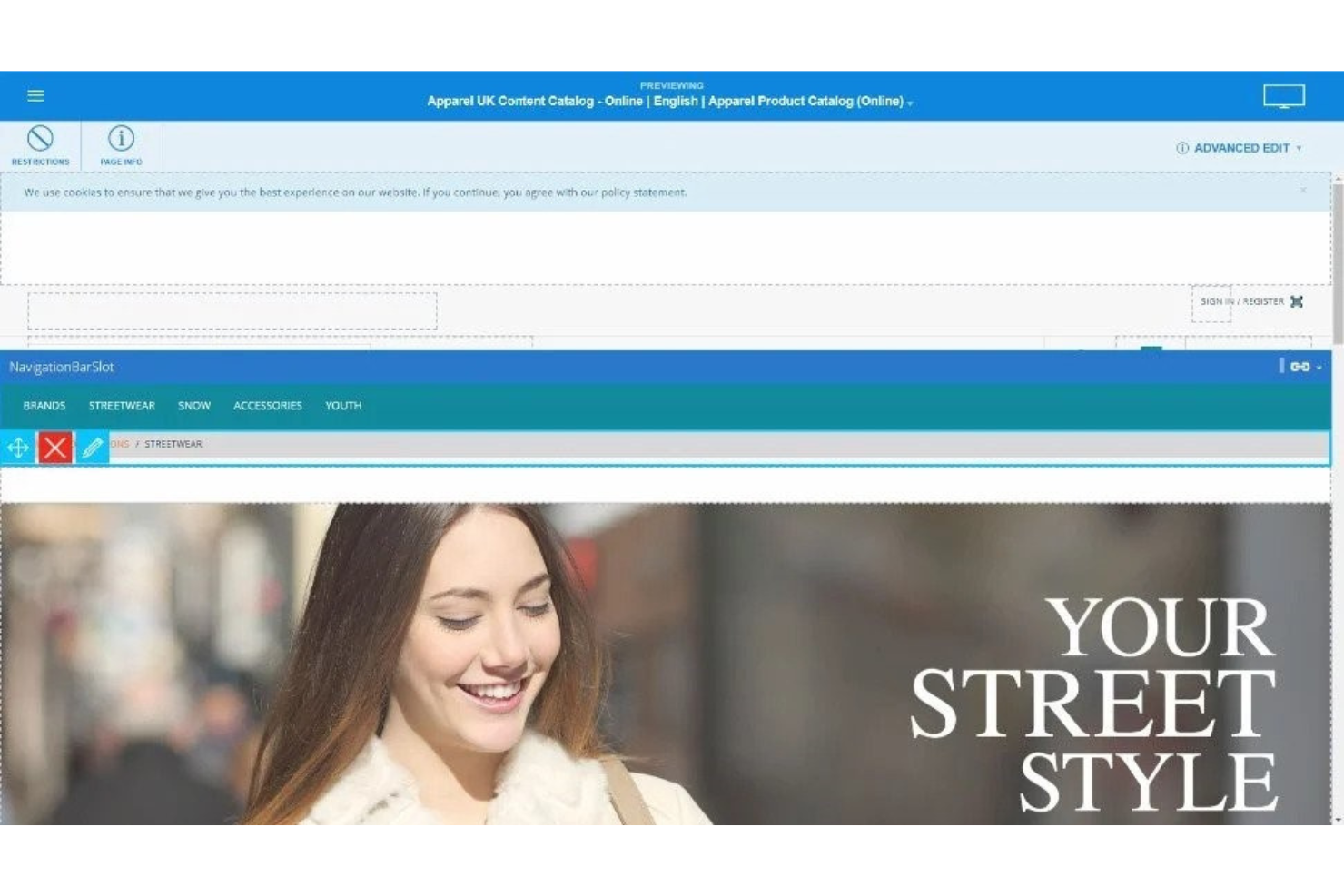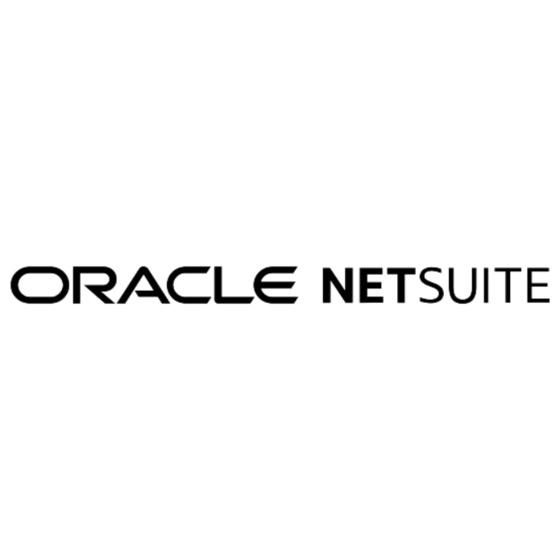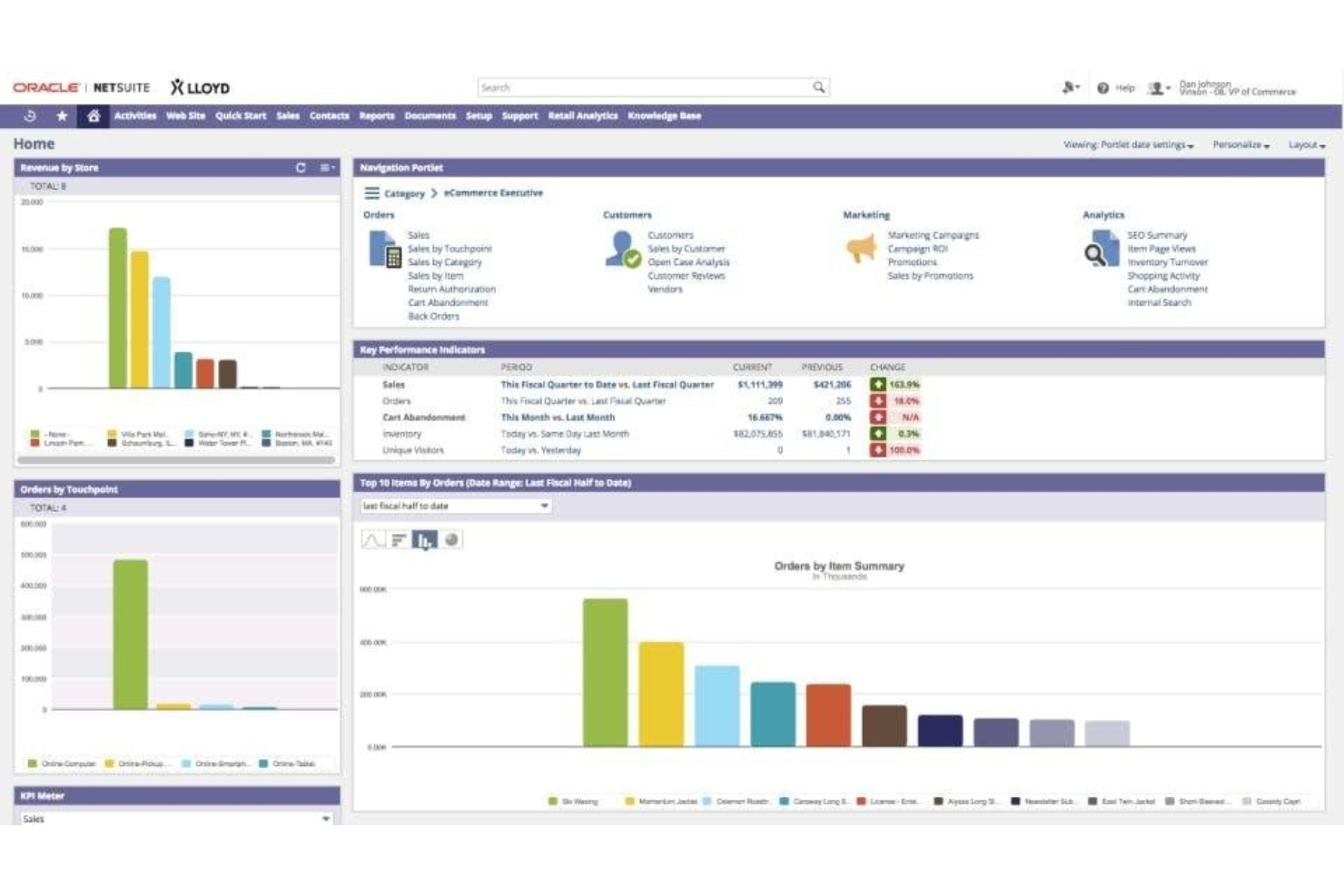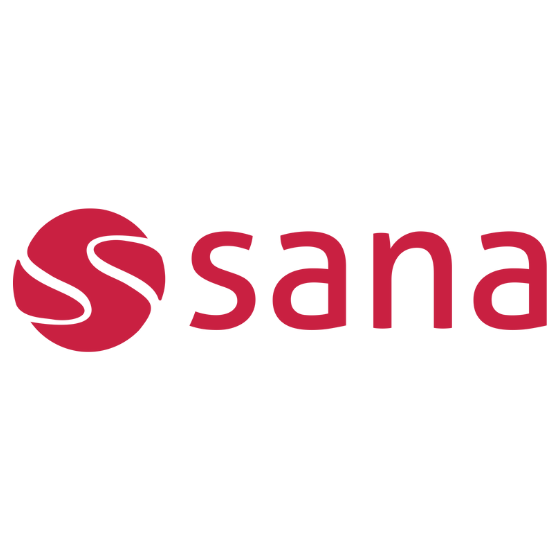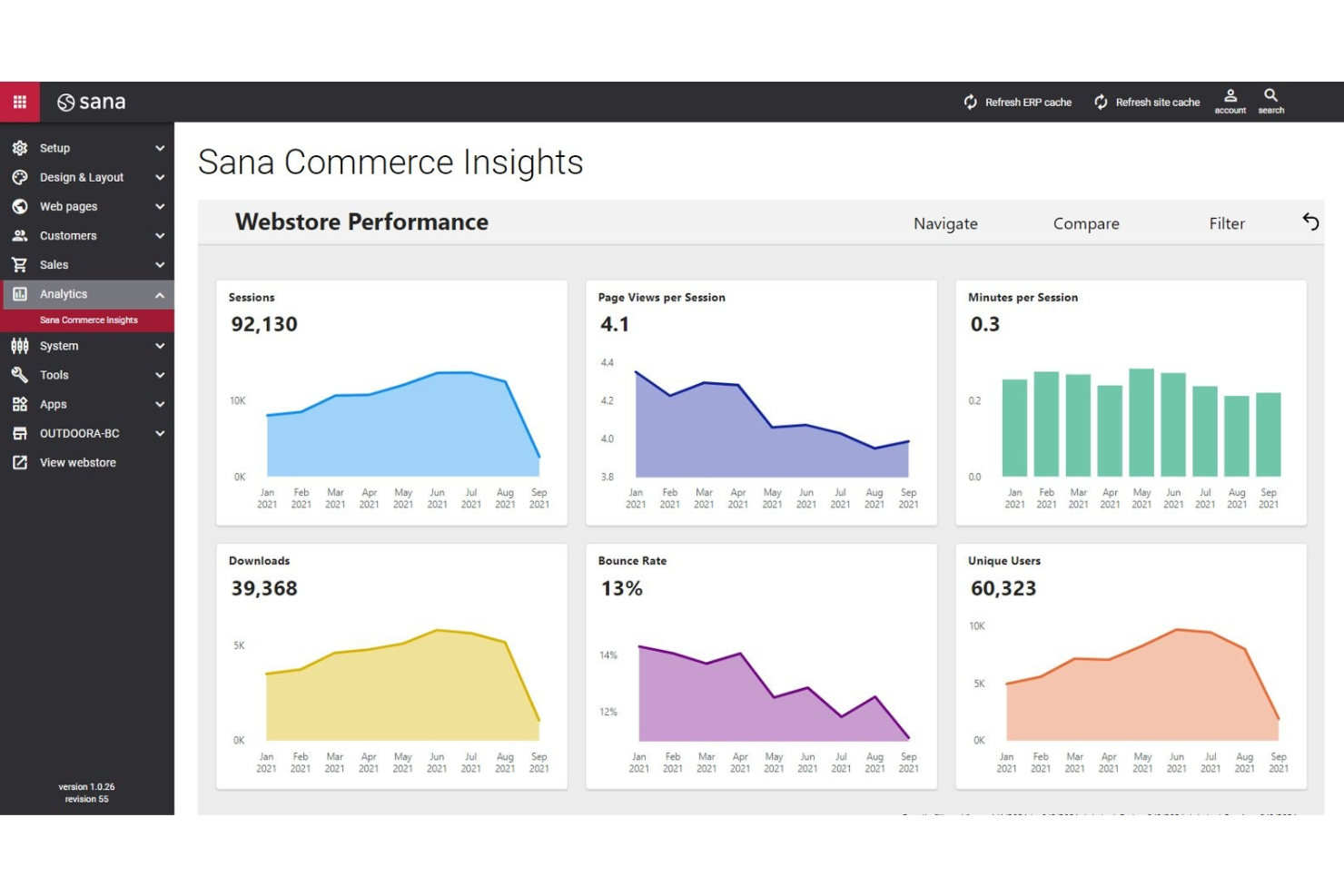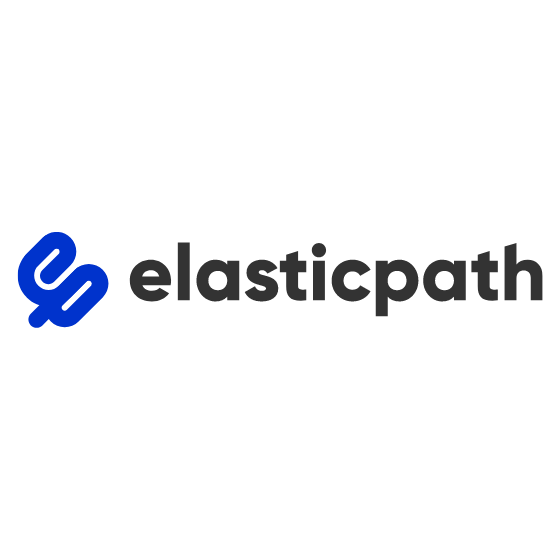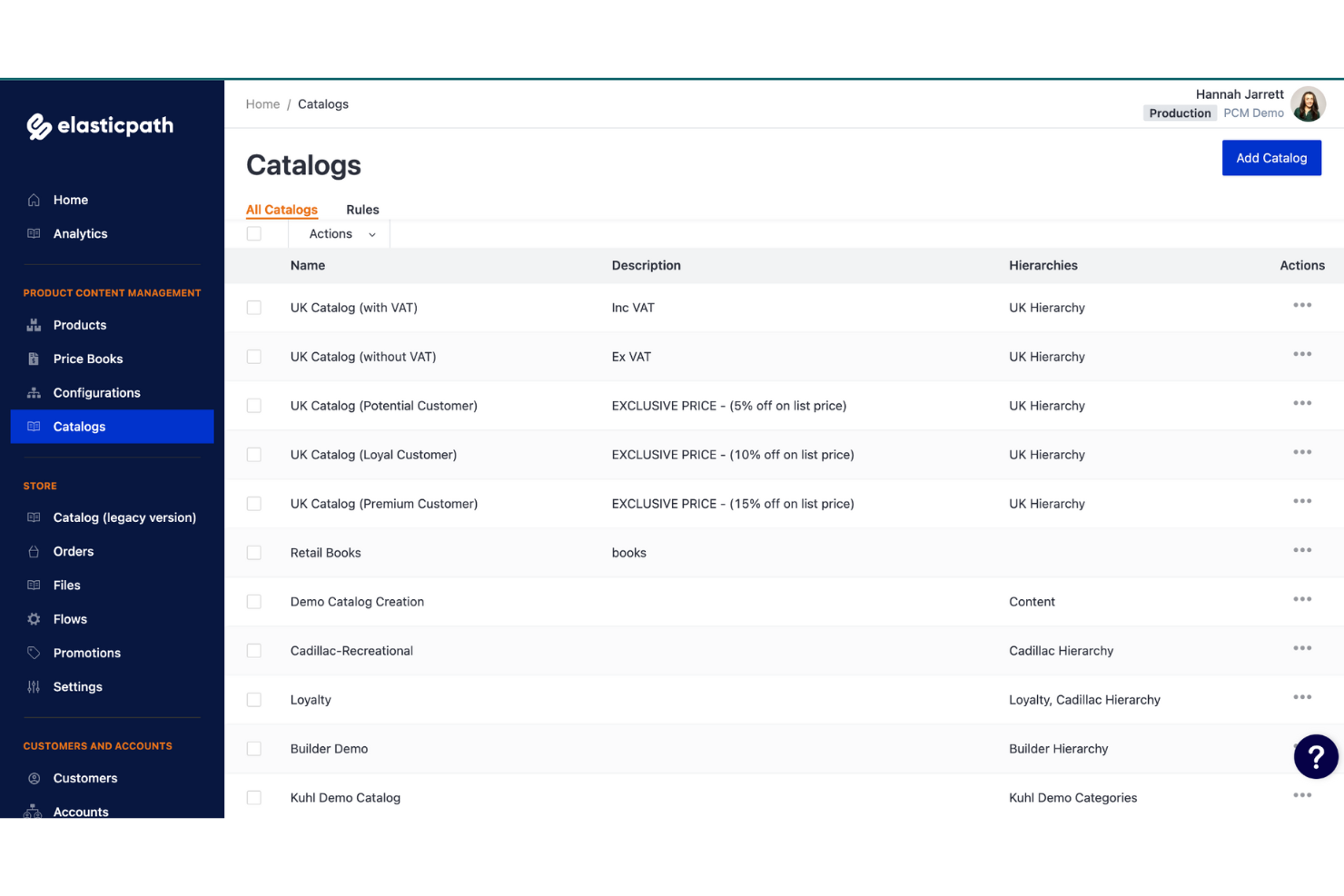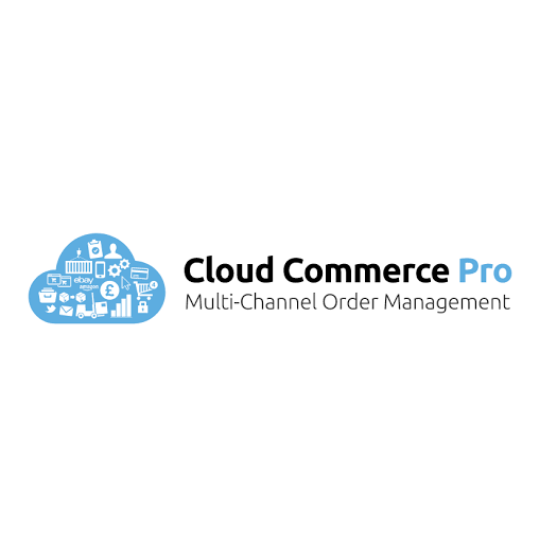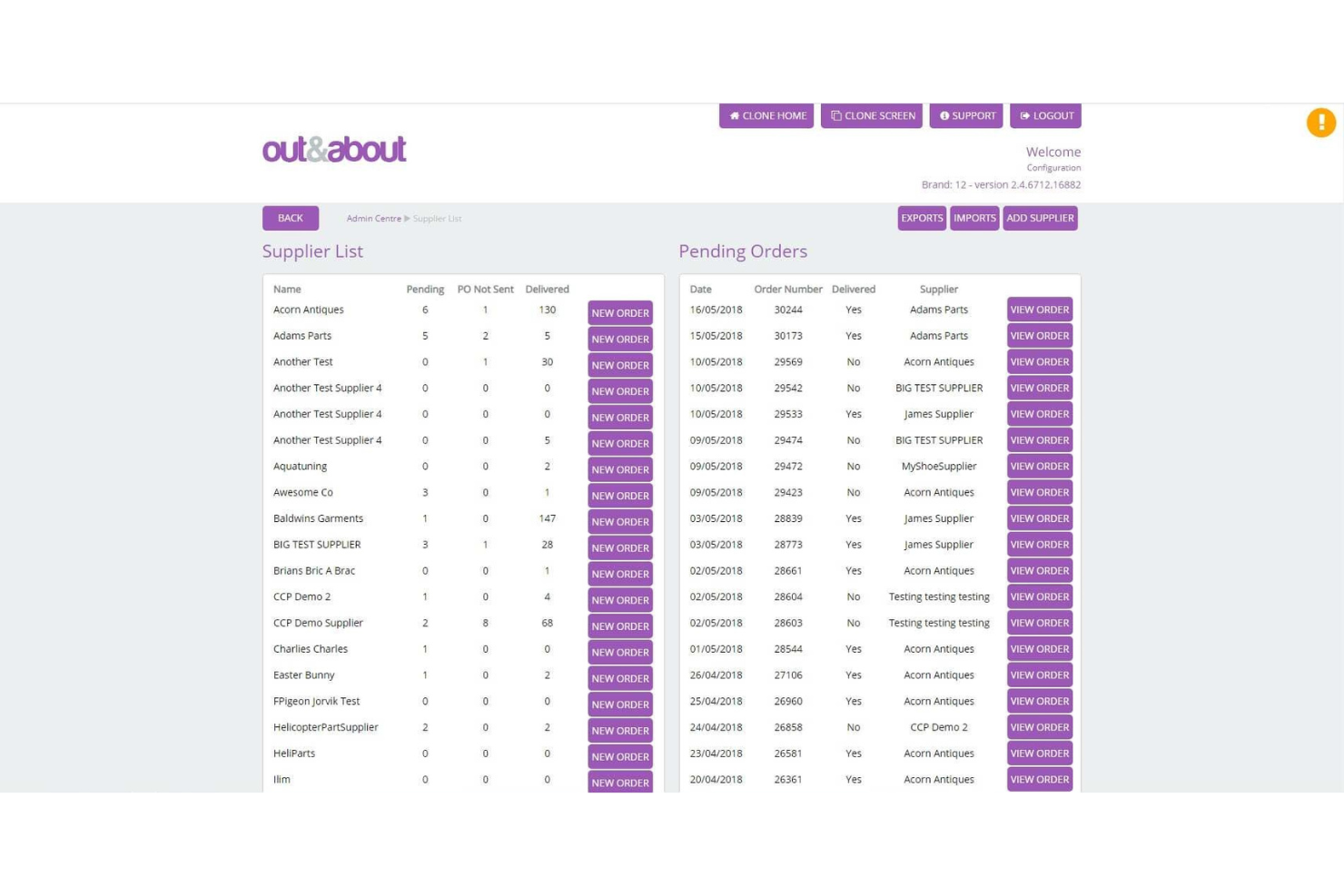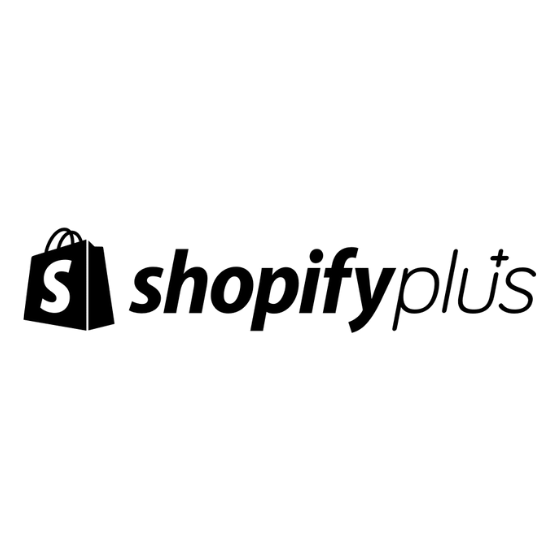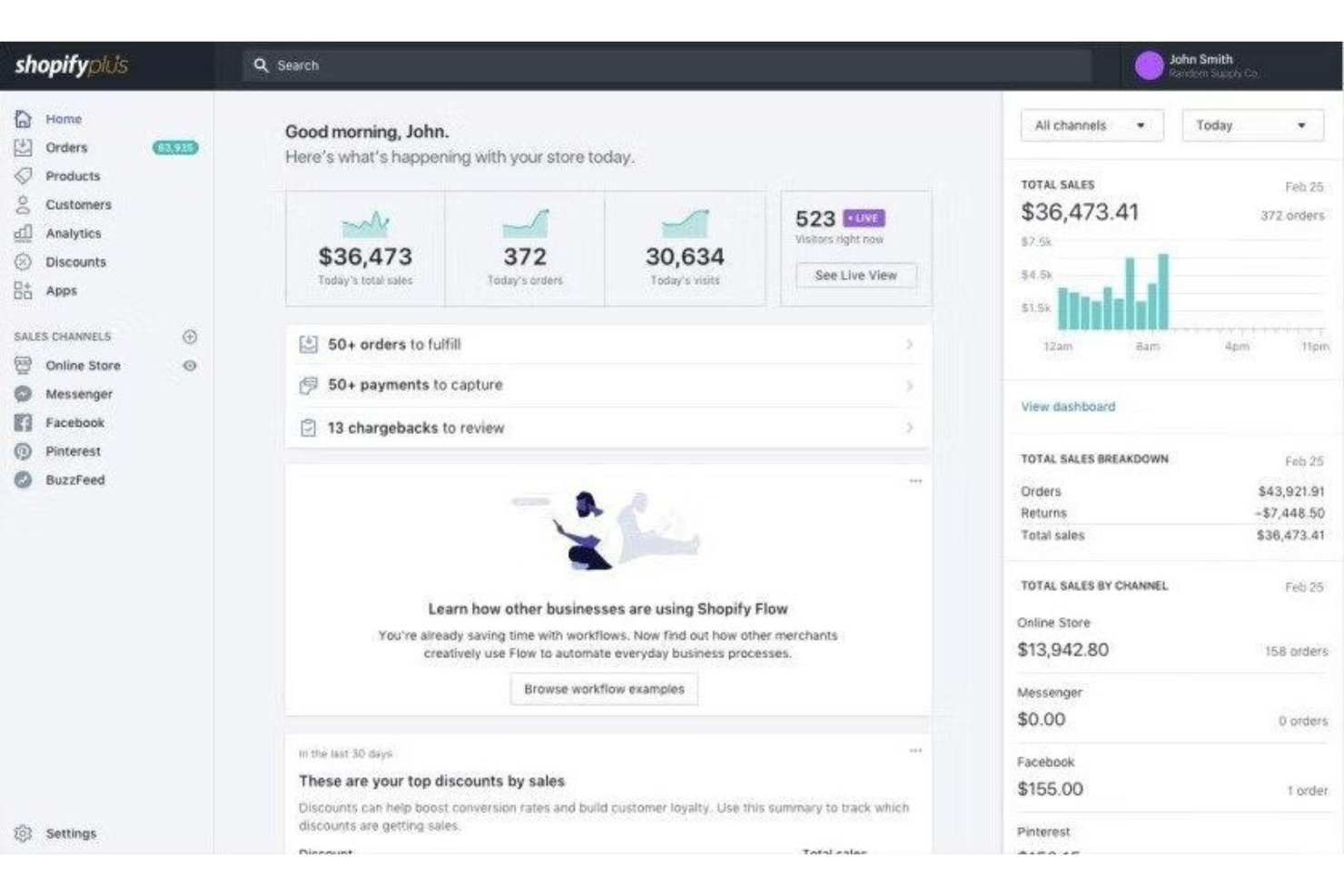10 Best Omnichannel Commerce Platforms Shortlist
Here's my pick of the 10 best software from the 20 tools reviewed.
There are seemingly countless omnichannel commerce platforms available, so figuring out which is best for you is tough. You want to provide a seamless shopping experience for customers across various channels, like online, mobile, and in-store—but now need to figure out which tool is the best fit. I've got you! In this post, I make things simple, leveraging my experience managing online commerce businesses, and using dozens of different omnichannel commerce tools to bring you this shortlist of the best omnichannel commerce platforms overall.
Why Trust Our Reviews
We’ve been testing and reviewing ecommerce software since 2018. As ecommerce managers ourselves, we know how critical, and difficult it is to make the right decision when selecting software.
We invest in deep research to help our audience make better software purchasing decisions. We’ve tested more than 2,000 tools for different ecommerce use cases and written over 1,000 comprehensive software reviews. Learn how we stay transparent & our software review methodology.
The Best Omnichannel Commerce Platforms Summary Chart
| Tools | Price | |
|---|---|---|
| Linnworks | From $449/month (volume-based pricing) | Website |
| Bloomreach | Pricing upon request | Website |
| SellerCloud | From $1,100/month | Website |
| Orckestra | Pricing upon request | Website |
| SAP Commerce Cloud | Pricing upon request | Website |
| NetSuite Commerce | From $2,500/month + $999 license fee + $99/month access fee | Website |
| Sana Commerce | Pricing upon request | Website |
| Elastic Path | Pricing upon request | Website |
| Cloud Commerce Pro | Pricing upon request | Website |
| Shopify Plus | From $2,000/month | Website |

Compare Software Specs Side by Side
Use our comparison chart to review and evaluate software specs side-by-side.
Compare SoftwareHow to Choose Omnichannel Commerce Platforms
With so many different omnichannel commerce platforms available, it can be challenging to make decisions on what omnichannel commerce platform is going to be the best fit for your needs. As you're shortlisting, trialing, and selecting omnichannel commerce platforms, consider the following:
- What problem are you trying to solve - Start by identifying the omnichannel commerce feature gap you're trying to fill to clarify the features and functionality the omnichannel commerce platform needs to provide.
- Who will need to use it - To evaluate cost and requirements, consider who'll be using the software and how many licenses you'll need. You'll need to evaluate if it'll just be the ecommerce team, or the whole organization that will require access. When that's clear, it's worth considering if you're prioritizing ease of use for all, or speed for your ecommerce software power users.
- What other tools it needs to work with - Clarify what tools you're replacing, what tools are staying, and the tools you'll need to integrate with, such as accounting, CRM or HR software. You'll need to decide if the tools will need to integrate together, or alternatively, if you can replace multiple tools with one consolidated omnichannel commerce platform.
- What outcomes are important - Consider the result that the software needs to deliver to be considered a success. Consider what capability you want to gain, or what you want to improve, and how you will be measuring success. For example, an outcome could be the ability to get greater visibility into performance. You could compare omnichannel commerce platform features until you’re blue in the face but if you aren’t thinking about the outcomes you want to drive, you could be wasting a lot of valuable time.
- How it would work within your organization - Consider the software selection alongside your workflows and delivery methodology. Evaluate what's working well, and the areas that are causing issues that need to be addressed. Remember every business is different — don’t assume that because a tool is popular that it'll work in your organization.
Best Omnichannel Commerce Platforms Reviews
Here’s a brief description of each omnichannel commerce platform to showcase each one’s best use case, some noteworthy features, screenshots, and pricing information.
Linnworks is a centralized ecommerce management tool that provides inventory management, order management, and multichannel listings.
Why I picked Linnworks: This omnichannel commerce platform provides seamless communication between all your sales channels and offers real-time inventory and order status visibility. The platform also provides access to a network of major shipping carriers. You can even set up automation at any stage of the order process, from inventory to fulfillment.
Designed for ecommerce sellers, multiproduct sellers, and third-party logistics providers, Linnworks integrates with many global sales channels to offer a complete solution for managing and growing your business. The platform aims to help you maintain operations and provide a consistent shopping experience for customers across all channels.
Linnworks Standout Features and Integrations
Features include inventory, order, warehouse, and shipping management, stock forecasting, reporting and analytics, and multichannel listings.
Integrations include Amazon, eBay, Shopify, Walmart, UPS, Fluid Commerce, QuickBooks, ConnectBooks, FedEx, Happy Returns, Etsy, Magento, Duoplane, and more.
Pros and cons
Pros:
- Real-time analytics
- Many integrations available
- Consolidates stock control, order processing, and purchasing
Cons:
- User interface can be difficult for less tech-savvy people
- Can be pricey depending on the scale of your operation
Bloomreach helps retailers deliver the same experiences across all their digital touchpoints from a centralized platform.
Why I picked Bloomreach: The platform’s omnichannel engagement tools allow your teams to deliver personalized journeys throughout your channels. The drag-and-drop tool can help you control every aspect of your customer’s experiences. You can fine-tune your success with the A/B testing tool, instantly get insight into your store’s performance, and make necessary changes.
Bloomreach can help medium and large businesses understand their customers and what they want to find. The platform has a relevance engine that looks through your entire data set and uses it to ensure every customer has an experience that matches their intentions. For example, it can understand when chocolate is the product and when it’s an attribute; this means that when customers search for milk chocolate, they’ll see bars or chocolate instead of chocolate milk.
Bloomreach Standout Features and Integrations
Features include search intelligence, merchandising, product recommendations, personalized search, search engine optimization, site search, and content personalization.
Integrations include Mailchimp, Quickbooks, Bynder, Dropbox, DocuSign, Slack, Trello, Zoho, SugarCRM, Microsoft Dynamics 365, Pipedrive, Salesforce, and Zapier.
Bloomreach offers custom pricing upon request.
Pros and cons
Pros:
- Easy to use and navigate.
- Executes tasks quickly.
- Short learning curve.
Cons:
- Editor needs work.
- Updates reset default settings.
Sellercloud provides proprietary inventory management tools that enable businesses to track what they have and where they have it.
Why I picked Sellercloud: The low inventory alerts from the platform make it easy and convenient to place orders with your supplier from the software. If you have inventory in several storage locations, the platform will assign inventory to orders using predefined criteria, such as shipping method, region, order value, and other vital attributes. Sellecloud then automatically updates your available quantities across all your sales channels.
Sellercloud is a reliable, decentralized option for businesses of any size across multiple industries. It’s highly customizable, so you can ensure its features meet your requirements. Also, its invoice customization development features can help ensure that your teams fulfill orders accurately.
Sellercloud Standout Features and Integrations
Features include product catalog, inventory management, predictive purchasing, omnichannel solutions, order management, shipping & fulfillment, financial tracking, custom order-related rules, reporting, warehouse management, and electronic data interchange.
Integrations include BigCommerce, Shopify, Shift4Shop, Magento, ShipStation, Stripe, Quickbooks, Eye4Fraud, Signifyd, Microsoft Dynamics, and Zapier.
Sellercloud costs from $1,100/month.Sellercloud offers a free demo.
Pros and cons
Pros:
- Excellent inventory management.
- Clean layout.
- Very scalable system.
Cons:
- Customer support isn’t great.
- Challenging to learn.
Orckestra uses a comprehensive API to support the most complex business processes and grow with your company.
Why I picked Orckestra: The platform’s API can eliminate the need to change platforms by connecting to your current technology stack and creating new experiences. The API is flexible and helps customers access your inventory at every sales channel while giving you a unified view of all orders. Orckestra also provides a complete suite of commerce services and business applications to manage your omnichannel experiences.
Orckestra is a good fit for enterprise-level businesses to optimize commerce experiences for all devices and sales channels. It gives you the tools to develop the best product offerings and landing pages immediately. You can use the platform to improve your product placement with intelligent visual merchandising tools and create dynamic product collections anywhere on your storefront.
Orckestra Standout Features and Integrations
Features include experience management, product management, visual merchandising, catalog management, product collections, customer segmentation, mobile store fulfillment, and order workflows.
Integrations include an API that allows you to connect the platform to your current systems.
Orckestra offers custom pricing upon request.
Pros and cons
Pros:
- Improves store experience.
- Tracks changes and updates.
- Responsive support team.
Cons:
- System updates are slow.
- No custom reporting.
SAP Commerce Cloud is an innovative platform that helps you personalize the customer experience with intelligent solutions.
Why I picked SAP Commerce Cloud: You can use the platform to promote products that your customers value with real-time recommendations and merchandising. SAP Commerce Cloud’s insights can help you understand your customers’ requirements throughout their buying journey. The A/B testing tools can also help you meet and exceed targets to achieve your goals by fine-tuning customer experiences.
SAP Commerce Cloud works best for any business size by providing the ability to create progressive web applications for their company. Your teams can use the platform to set up catalogs in multiple languages and provide product details, such as descriptions, photos, videos, and attributes. It comes with an order management module that helps users view real-time stock availability throughout all sales channels and create sourcing and allocation rules for warehousing.
SAP Commerce Cloud Standout Features and Integrations
Features include product content management, experience management, order management, multilingual catalogs, A/B testing, machine learning, and fulfillment strategies.
Integrations include Affirm, Convert Experiences, Bloomreach, Urbantz, Alumio, CELUM, SmartHint, Segmentify, Konverse AI, Augmenteers, and CaliberMind.
SAP Commerce Cloud offers custom pricing upon request. SAP Commerce Cloud offers a demo to help you understand whether the platform is right for you.
Pros and cons
Pros:
- Straightforward user interface.
- Connects all customer touchpoints.
- Provides regular updates.
Cons:
- Customization causes stability issues.
- Performance issues with large information amounts.
NetSuite Commerce provides a completely integrated solution that connects various business aspects across multiple sales channels.
Why I picked NetSuite Commerce: The platform can connect enterprise resource planning, customer relationship management, inventory management, finance, and other vital systems to operate your business. Customer, financial, product, compliance, and relevant data is accessible through NetSuite’s dashboards and reporting tools. All of your data is in the same cloud interface, so you can receive real-time business intelligence to help you make more effective decisions.
NetSuite Commerce is suitable for medium and large enterprises that handle B2B and B2C sales. It can connect your online and in-store experiences for retailers in any industry to get a single source of customer, item, and inventory data. The vendor also has a significant selection of industry-specific software bundles with preconfigured reports, dashboards, KPIs, and other vital functions to fit your requirements.
NetSuite Commerce Standout Features and Integrations
Features include online invoice payment, account balances, product comparisons, image gallery, social sharing, customer information, order management, inventory management, marketing automation, and customer service management.
Integrations include Affirm, NetSuite CRM, Lightyear, ZoneBilling, Neuron ESB, and Pacejet.
NetSuite Commerce offers custom pricing upon request. NetSuite Commerce offers a free tour to help you determine whether the platform is right for you.
Pros and cons
Pros:
- Custom reporting features.
- Excellent inventory management.
- Outstanding customer support.
Cons:
- Not easy for new users.
- Some SEO issues.
Sana Commerce knows what it takes to enable businesses to provide B2B customers with an experience similar to B2C environments.
Why I picked Sana Commerce: It helps B2B organizations incorporate features that buyers are used to seeing in direct-to-consumer environments. These features include custom product recommendations and simple reordering processes. The enterprise resource planning features can help you create a consistent experience and help your customers understand what you have available in real time.
Sana Commerce provides subscriptions that fit medium and large B2B organizations and helps them enhance customer loyalty. Its ERP integrations offer complete transparency and self-service to your customers. You can use Sana Commerce’s internalization features to create multiple region-specific web stores to fit your global audiences and maximize your success.
Sana Commerce Standout Features and Integrations
Features include order management, account management, invoice processing, real-time order tracking, content management, drag-and-drop designer, omnichannel purchasing, and ERP integrations.
Integrations include Authorize.net, Mailchimp, dotdigital, Microsoft Dynamics 365, SAP ERP, FedEx Ship Manager, Worldpay, Buckaroo, Opayo, and Avalara.
Sana Commerce offers custom pricing upon request. Sana Commerce offers a free demo.
Pros and cons
Pros:
- Ensures 100% website uptime.
- Optimizes products for search engines.
- Excellent training materials.
Cons:
- Not many website theme choices.
- Reporting needs improvement.
Elastic Path enables digital retail businesses to combine their capabilities with external, third-party integrations to create omnichannel commerce experiences quickly.
Why I picked Elastic Path: The platform enables businesses to use pre-made, business-ready solutions that combine Elastic Path’s capabilities, customizations, and third-party integrations to create high-level omnichannel experiences. You can create a custom solution for your requirements using the platform’s capabilities and various integrations if you want.
Elastic Path works best for large businesses and enterprise organizations that prefer to implement an omnichannel solution on the leading CMS and digital experience platforms. These include Drupal OpenText and Sitecore. Those using Adobe Marketing Cloud can create flexible omnichannel experiences with Elastic Path.
Elastic Search Standout Features and Integrations
Features include inventory control, customer accounts, activity dashboard, customer segmentation, conversion tracking, real-time data, shipping management, and order processing.
Integrations include SmartHint, GhostRetail, Drupal, Braintree, Contentful, Google Analytics, Stripe, Algolia, CoreMedia CMS, Vertex, AiBUY, and Authorize.net.
Elastic Path offers custom pricing upon request.
Pros and cons
Pros:
- Dependable and fast API.
- Easy to use.
- Highly customizable.
Cons:
- Some feature bugs.
- Upgrades can cause issues.
Cloud Commerce Pro helps automate your fulfillment process to reduce costs from one system regardless of your customer’s sales channel.
Why I picked Cloud Commerce Pro: Your business can easily manage orders from multiple sales channels from anywhere and eliminate errors from manually creating picking lists. Sales from each channel will automatically update your inventory across all other channels. Cloud Commerce Pro helps your business implement flexible, automated picking and packing methods to process hundreds of daily orders that are ready for shipping.
Cloud Commerce Pro works with any sized business scale direct-to-consumer brands and increases their global market share. The platform can also help your company scale by providing marketing services to help you sell more products. These services include email marketing, social media management, influencer marketing, and web development.
Cloud Commerce Pro Standout Features and Integrations
Features include order management, order dispatching, warehouse management, CRM and messaging, shipping automation, user management, stock control, and trade order.
Integrations include Shopify, WooCommerce, Magento, Quickbooks, Xero, PayPal, Stripe, and Worldpay. They also offer an open API to connect your systems to the platform.
Price: Cloud Commerce Pro offers custom pricing upon request. Cloud Commerce Pro offers a free demo.
Pros and cons
Pros:
- Excellent customer support.
- Simple product search.
- Automates simple tasks.
Cons:
- Difficult to learn.
- Bugs can cause delays.
Shopify Plus provides ecommerce stores with additional functionality on top of its basic service, including an excellent selection of sales channels.
Why I picked Shopify Plus: The platform can help you combine your online and offline sales in one location. Specifically, you can use Shopify Plus to sell on over 100 social media platforms, 80 online marketplaces, blogs, and mobile interfaces. Shopify also regularly updates the number of sales channels it supports to reflect current trends.
Shopify Plus specifically focuses on enterprise-level brands with significant sales volumes. It gives you access to the same editor dashboard and support center as the standard Shopify service, but its additional benefits enable you to do much more. For example, those who wholesale products on a B2B level can do so without additional programming or scripting.
Shopify Plus Standout Features and Integrations
Features include global sales, headless commerce, retail and point of sale, campaigns and flash sales, B2B commerce, retail automation, payment gateways, and multiple shipping features.
Integrations include AdRoll, Brightpearl, Mailchimp, Lucky Orange, Klaviyo, Oracle NetSuite, Omnisend, Printful, Quickbooks, Rise.ai, and ShipStation.
Shopify Plus costs from $2,000/month. The platform also offers a variable fee for higher-volume companies.
Pros and cons
Pros:
- Simple design.
- Excellent customer purchase visibility.
- Fast product synchronization.
Cons:
- Complex API integration.
- Very expensive.
Other Omnichannel Commerce Platforms
Here are a few more options that didn’t make the best omnichannel commerce platform list:
-
Carat by Fiserv
Best for robust payment solutions
-
Salesforce Commerce Cloud
Best for personalized shopping experiences with AI
-
BigCommerce
Best for data reporting
-
Adobe Commerce
Best for expanding into new countries and languages.
-
Centra
Best for fashion and lifestyle brands.
-
Cin7 Omni
Best enterprise resource planning platform.
-
BetterCommerce
Best for simplifying technical ecommerce systems.
-
Pipe17
Best for automating end-to-end processes.
-
Linnworks
Best for total commerce control.
-
Accumula
Best for uniting ecommerce sites with in-store POS.
Related Ecommerce Software Reviews
If you still haven't found what you're looking for here, check out these related ecommerce tools that we've tested and evaluated.
- Ecommerce Platforms
- Inventory Management Software
- Payment Processing Software
- Shopping Cart Solutions
- Order Management Systems
- Warehouse Management Software
Selection Criteria for Omnichannel Commerce Platforms
Selecting the right omnichannel commerce platform involves a careful evaluation of what they have to offer. Through extensive personal trials and research, I've developed criteria to guide software buyers towards making an informed decision.
Core Functionality - 25% of total weighting score:
- Inventory management across all channels
- Unified customer profiles
- Seamless integration of online and offline sales channels
- Real-time analytics and reporting
- Flexible payment and checkout options
Additional Standout Features - 25% of total weighting score:
- Advanced personalization capabilities, such as AI-driven recommendations
- Robust API for custom integrations
- Innovative loyalty and rewards programs
- Omnichannel marketing tools
- Exceptional mobile user experience
Usability - 10% of total weighting score:
- Intuitive interface design
- Ease of navigating through the platform
- Simplified product management tools
- Streamlined order management process
Onboarding - 10% of total weighting score:
- Comprehensive training materials
- User-friendly setup wizards
- Effective customer onboarding support
- Availability of customization templates
Customer Support - 10% of total weighting score:
- 24/7 live support
- Extensive online knowledge base
- Responsive customer service team
- Community forums for peer support
Value For Money - 10% of total weighting score:
- Transparent pricing models
- Competitive pricing relative to features offered
- Scalability without excessive cost increments
- Free trial or demo availability
Customer Reviews - 10% of total weighting score:
- High overall satisfaction rates
- Positive feedback on ease of use and setup
- Strong testimonials regarding customer support
- Favorable comparisons to competitors in terms of value
This methodology ensures that the selected omnichannel commerce platform not only covers essential functionalities but also excels in providing a comprehensive solution that enhances the shopping experience for both the business and its customers.
Trends in Omnichannel Commerce Platforms for 2024
Here are some trends I’ve noticed for omnichannel commerce technology, plus what they might mean for the future of the marketing industry. I sourced countless product updates, press releases, and release logs to tease out the most important insights.
In the ever-evolving landscape of omnichannel commerce, 2024 has brought to light a slew of innovative trends and functionalities. These advancements aim to provide a seamless and consistent shopping experience, addressing a variety of needs and challenges faced by eCommerce professionals. Here’s a look at the top 10 trends shaping the future of omnichannel commerce platforms:
- Unified Customer Profiles: By leveraging AI to integrate data across in-store, online, and mobile platforms, businesses can now offer personalized shopping experiences. This approach caters to the demand for a shopping experience that feels individually tailored, enhancing customer satisfaction and loyalty.
- Augmented Reality (AR) Shopping: AR technology has become a rapidly evolving feature, enabling customers to visualize products in their own space before making a purchase. This innovative tool addresses the challenge of the online shopping experience lacking the tangibility of in-store shopping, improving customer confidence in their purchases.
- Voice Commerce Integration: Voice-activated shopping is becoming more prevalent, making shopping more accessible and convenient for users. This functionality taps into the growing use of smart home devices, simplifying the customer’s shopping process by allowing hands-free operations.
- Social Commerce Integration: The integration of shopping capabilities within social media platforms is a trend that’s rapidly gaining traction. This caters to the consumer's preference for shopping within their social media feeds, creating a streamlined path from product discovery to purchase.
- Blockchain for Transparency and Security: Blockchain technology is being used to enhance transparency and security in transactions. This novel approach addresses consumer concerns regarding privacy and data security, fostering trust in online and mobile transactions.
- Sustainable and Ethical Shopping Features: Features that allow consumers to shop according to their values—such as sustainability and ethical production—are becoming more prominent. This trend aligns with the growing consumer demand for brands that reflect their personal values and concerns for the environment.
These trends highlight the omnichannel commerce platform's evolution toward creating more personalized, efficient, and secure shopping experiences. By focusing on these key features, ecommerce professionals can better meet their customers' needs and preferences, paving the way for enhanced customer satisfaction and loyalty.
What are Omnichannel Commerce Platforms?
Omnichannel commerce platforms are streamlined systems that unify sales and marketing channels to offer a cohesive customer experience. They bridge online and offline environments, like websites, physical stores, and mobile apps, allowing businesses to interact with customers consistently across all touchpoints.
The purpose is to enhance customer engagement and satisfaction but also provide businesses with integrated data insights for better decision-making and personalized service. In essence, these platforms are about connecting all channels to serve customers more effectively and efficiently.
Features of Omnichannel Commerce Platforms
Omnichannel commerce platforms are designed to provide a seamless shopping experience across various channels, enabling businesses to meet the evolving demands of today's consumers. Key features of these platforms include:
- Centralized Inventory Management: Enables real-time inventory tracking across all sales channels, ensuring accurate stock levels are maintained both online and in physical stores.
- Unified Customer Profiles: Collects and integrates customer data from multiple touchpoints, allowing for personalized marketing, sales, and customer service.
- Cross-Channel Order Management: Facilitates the management of orders from multiple channels within a single interface, streamlining fulfillment processes and improving customer satisfaction.
- Integrated Point of Sale (POS) Systems: Allows for the synchronization of in-store sales with online and mobile platforms, providing a cohesive retail experience.
- Customer Relationship Management (CRM): Tools to manage customer interactions and data across the customer lifecycle, enhancing customer engagement and loyalty.
- Multi-Channel Marketing: Supports marketing campaigns across various channels, such as email, social media, SMS, and more, to engage customers wherever they are.
- Personalization Engines: Leverages customer data to deliver personalized content, product recommendations, and offers across all channels, enhancing the shopping experience.
- Social Commerce Capabilities: Integrates with social media platforms to enable direct sales through social networks, tapping into the power of social shopping.
- Mobile Optimization: Ensures that all touchpoints are fully optimized for mobile devices, acknowledging the significant role of smartphones in the shopping journey.
- Analytics and Reporting Tools: Provides insights into customer behavior, sales trends, and channel performance, enabling data-driven decision-making.
- Flexible Payment Solutions: Offers multiple payment options and integrates with various payment gateways to streamline the checkout process for customers.
- Ecosystem Integration: Allows for easy integration with third-party apps and services, such as ERP systems, logistics and shipping providers, and product information management systems, to enhance operational efficiency.
- Customer Support and Service: Includes tools for managing customer service across channels, such as live chat, support tickets, and customer feedback mechanisms.
- Augmented Reality (AR) and Virtual Reality (VR): Incorporates AR and VR technologies to provide immersive shopping experiences, helping customers make informed decisions.
- Sustainability Features: Offers options for customers to make environmentally friendly choices, such as carbon-neutral shipping or products from sustainable sources.
These features collectively enable businesses to offer a cohesive and engaging shopping experience across all customer touchpoints, driving sales and fostering brand loyalty in the competitive ecommerce landscape.
Benefits of Omnichannel Commerce Platforms
In today's digitally-driven market, an omnichannel commerce platform offers a strategic advantage by seamlessly integrating various shopping channels to provide a cohesive customer experience. Here are five primary benefits of implementing an omnichannel commerce platform for both users and organizations:
- Enhanced Customer Experience: By offering a unified shopping experience across all channels, customers enjoy a consistent and personalized journey. This leads to increased satisfaction and loyalty, as consumers can move effortlessly between devices and platforms without losing context or preferences.
- Increased Sales and Revenue: An omnichannel strategy opens up multiple pathways for sales, tapping into different customer segments and preferences. The convenience of shopping from any channel can lead to more impulse purchases and higher overall spend, boosting the business's bottom line.
- Improved Inventory Management: Real-time visibility into inventory levels helps businesses manage their stock more efficiently, reducing the risk of overstocking or stockouts. This ensures that customers always find what they're looking for, whether they shop online or in-store.
- Data-Driven Insights: Collecting and analyzing data from multiple channels enables businesses to gain a deeper understanding of customer behavior and preferences. These insights can inform product development, marketing strategies, and personalized customer experiences, driving better business decisions.
- Operational Efficiency: Integrating processes and systems across channels can significantly streamline operations, from order management to customer service. This efficiency reduces costs and frees up resources that can be invested in growth and innovation.
By leveraging an omnichannel commerce platform, businesses can not only meet the current demands of their customers but also anticipate future needs, positioning themselves for long-term success.
Cost & Pricing for Omnichannel Commerce Platforms
Omnichannel platforms offer a range of features designed to unify customer experiences across all sales channels, from online to in-store. Understanding the pricing and plan options available can help potential buyers make informed decisions that align with their business goals and budget constraints.
Plan Comparison Table for Omnichannel Commerce Platforms
| Plan Type | Average Price | Common Features Included |
|---|---|---|
| Starter | $30 - $100/month | Basic inventory management, single channel integration, basic analytics, email support, and access to a community forum. |
| Professional | $100 - $300/month | Advanced inventory management, multi-channel integration, CRM tools, advanced analytics, phone and email support. |
| Enterprise | Custom Pricing | Customizable features, API access, dedicated account manager, advanced security features, and 24/7 priority support. |
| Free Option | $0 | Basic inventory management, limited product listings, community support. |
When exploring omnichannel commerce platform options, consider the scale of your operations and the specific features you need to achieve your business objectives. Pricing plans can offer flexibility, but the right choice depends on balancing the cost against the benefits of enhanced capabilities and support.
Frequently Asked Questions
Below, I answer some of the most commonly asked questions about omnichannel commerce platform.
What is the Difference Between Omnichannel And Ecommerce?
What is the difference between omnichannel and multichannel ecommerce?
Additional Ecommerce Platform Reviews
I believe these additional review lists will complement your research here, particularly if you're looking for something super specific for your store. You can start with the overall best ecommerce platforms, which contain a little bit of everything ranked in an ultimate list.
Ecommerce Platforms by Business Type
- SaaS Ecommerce Platforms
- B2B Ecommerce Platforms
- Ecommerce Marketplace Platforms
- Subscription Ecommerce Platforms
- Ecommerce Platforms For Small Businesses
- International Ecommerce Platforms
Ecommerce Platforms by Need
- Headless Ecommerce Platforms
- Easiest Ecommerce Platforms
- Enterprise Ecommerce Platforms
- Free Ecommerce Platforms
- Open Source Ecommerce Platforms
- Social Commerce Platforms
- Cheap Ecommerce Platforms
- Hosted Ecommerce Platforms
- Ecommerce Platforms In Canada
Conclusion
83% of consumers feel that convenience is more important than ever before. Omnichannel strategies ensure your brand remains consistent throughout your sales channels while providing customers with an efficient, streamlined experience. But you can’t properly implement them without quality software to help handle a vast number of operational tasks.
If you need more suggestions, sign up for our newsletter. Here you’ll receive new information regarding the latest tools to help you in various aspects of your business. You’ll also receive advice from various ecommerce leaders.


